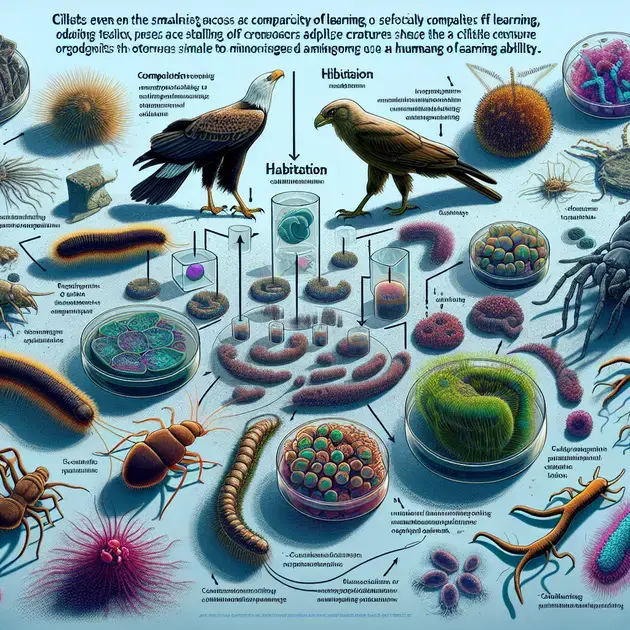Habituation: A Basic Form of Learning Observed in Single-Cell Organisms and Cells Within Our Bodies
Traditionally, habituation has been recognized as a behavior exclusive to animals with developed nervous systems and brains, as they possess the ability to process and interpret stimuli. However, a groundbreaking study challenges this notion by presenting intriguing evidence suggesting that even single-celled organisms and cells within our bodies can exhibit habituation-like behavior.
Habituation refers to a simple form of learning where an organism decreases its response to repeated or irrelevant stimuli. It allows organisms to filter out unnecessary stimuli and focus on more important information for survival. For example, if a bird continually hears a loud noise that poses no threat, it may eventually stop responding to that particular sound.
In the study, scientists conducted experiments using ciliates and amoebae, both microscopic single-celled organisms. These organisms were exposed to repetitive stimuli, and their responses were observed over time. Surprisingly, the researchers found that these single-celled creatures exhibited a decline in response to the stimuli, indicating a form of habituation.
Furthermore, the researchers investigated whether cells within multicellular organisms also displayed habituation. They focused on sensory cells in our bodies, which are responsible for transmitting and perceiving signals from the environment. To their astonishment, they discovered that these cells also showed habituation-like behavior when exposed to repetitive stimuli.
These findings provide important implications for our understanding of learning and behavior in organisms. They suggest that habituation may be a more fundamental and widespread learning mechanism, not limited to organisms with complex cognitive abilities such as brains and nervous systems.
The presence of habituation in single-cell organisms and cells within our bodies opens up new avenues for research. It prompts further exploration into the underlying mechanisms of this behavior and how it contributes to the overall functioning of an organism.
In conclusion, this study challenges the previously held belief that habituation is exclusive to organisms with brains and nervous systems. It provides compelling evidence suggesting that even tiny single-cell creatures like ciliates and amoebae, as well as cells within our own bodies, can exhibit habituation-like behavior. This discovery expands our understanding of learning mechanisms and highlights the importance of studying various organisms to comprehend the fundamental principles of behavior.
